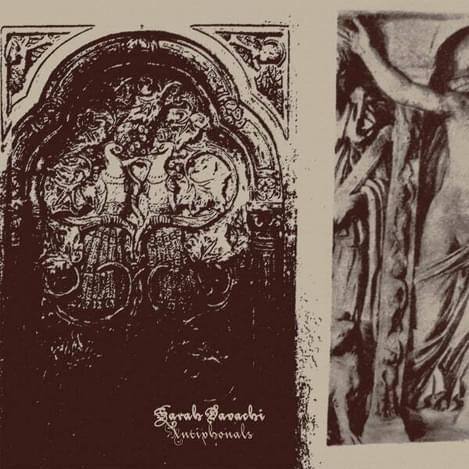Sarah Davachi paints a perfect picture with Antiphonals
"Antiphonals"

Here, in place of the variety of church organs dating from the fifteenth to the twentieth century that featured on last year’s Cantus, Descant, she uses some of the sounds of the Mellotron, such as clarinet, French and English horns. It’s an ingenious project, taking that characteristic piece of hardware from the progressive rock era of the 1960s and 1970s and using it to construct Minimalist pieces in a contrasting style that was nevertheless contemporaneous with the age of prog, so reminding us that true talent can work from the most diverse of inspirations.
The slow drone effects focus on the varied textures of sound, with gentle modulations, such as on “Border of Mind”, six minutes of subtle sonic shape-shifting. The following track, “Abeyant” starts with slow, bare piano notes, deliberately muffled through the use of just a four-track tape recorder. This develops into a richer immersive piece through the gradual introduction of the organ, as if to illustrate the point that a complex web of sound does not necessarily require magisterial musical forces.
Instead of the grandeur of Cantus, Descant, Antiphonals stresses the meditative, a spirituality without any specific religious denomination. Certainly, there is first-rate academic-historical awareness at work (Davachi is a PhD Musicology candidate), but this fine album succeeds through its ability to convey something beyond any time-defined notions of delicate beauty.
Get the Best Fit take on the week in music direct to your inbox every Friday

Tunde Adebimpe
Thee Black Boltz

Julien Baker & TORRES
Send A Prayer My Way

Bon Iver
SABLE, fABLE





